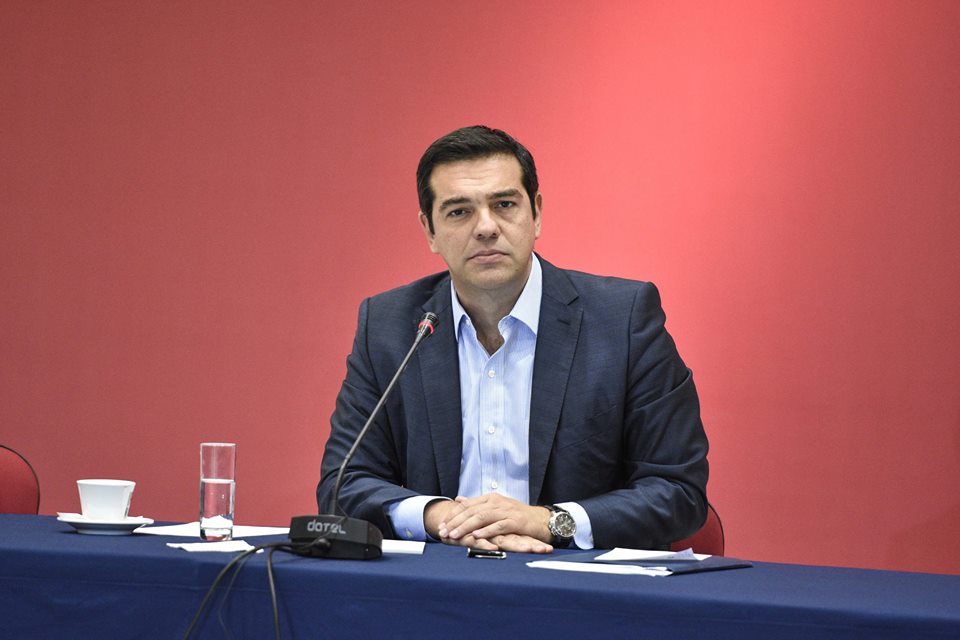 The next big thing in Greek politics will not be the two-party coalition’s political dominance drawn from the successful implementation of MoU’s prior actions. The next big thing, or ‘national vision’ columnists continue to seek after Greece’s entrance in the EMU and the controversial 2004 Olympics, will be much simpler and will rely on common people’s accomplishments.
The next big thing in Greek politics will not be the two-party coalition’s political dominance drawn from the successful implementation of MoU’s prior actions. The next big thing, or ‘national vision’ columnists continue to seek after Greece’s entrance in the EMU and the controversial 2004 Olympics, will be much simpler and will rely on common people’s accomplishments.
What does this mean? For those who subscribe to the relevant American-fed scenario, adopted by Wall Street Journal and other systemic global media, the next big thing could be the rebellion of the technocrats, the upheaval of common sense against obsolete mentalities and inefficient party politics.
As a friend of mine -a proponent of this view- says, “it’s going to be you and me hitting the streets, because we cannot take it anymore.” How this becomes popular? How allegedly advanced people could use simplicity to change things? Could an “intellectual indignados” rebellion be the solution for Greece?
Probably, this question will be left unanswered until we see it in practice. But, perhaps what remains important is that people from various professional and intellectual backgrounds are appearing having radical voices amongst their Facebook peers and in summer gatherings. More and more ‘commentators of life’ are turning themselves into Soc Nets columnists with an increasing number of followers who are willing to pick up a debate and comment on current affairs.
This up-scale, low voice indignant appetite seems to run horizontally in Greek society, having ‘common sense’ as its front running banner. So, why in Greece, change continues to come in the form of an obligatory process, instead of being part of an effort to move the country forward?
Having intellectuals, academics, people of the mind rallying -and probably being engaged in innovative activism- is an attractive thought. But who are these people and how far are they willing to go? What could be the logistics of this ‘revolution’? Would it include clashes of demonstrating suited technocrats and bearded scientists against SYRIZA’s leftish crowd and PAME’s rally soldiers? Well, despite its graphicness, this couldn’t possibly end well. And if it did, the question would be: for whom? What’s the end game? How this could turn into actual and -most importantly- enlightened governance?
Another question: “Who benefits?” an old –probably lefty- professor of mine in London used to ask, when we were discussing the deregulation of British Telecom and the energy grid. The answer is key, in order to think about it wisely and of course, to frame the perspective within current Greek situation.
In the case of Greece, coming up with an answer is not an easy task, almost impossible, if we stop considering, for instance privatisations as something more than a state revenue boost. Of course, a privatisation state chief flying on private planes, owned by a state property buyer is not something that assists towards the justification of the process.
Although not necessarily the best-case scenario, I think the way out of the Greek crisis will be once again political, even canonical. It will not emerge out of illuminated technocrats, who will rally, expressing a higher level of discontent towards inefficiency and old partisanship. This agenda alone, although could suffice to overthrow a government in the minds of people – and providing it does not constitute a post-modern coup d’ etat-, it does not offer a viable alternative solution for three reasons: first, it would lack popular support, especially amongst the unemployed and those who were severely hit by austerity, second, it would need to outsource its political organisation to questionable centers of power and third, it would cause a bold juxtaposition with the representatives of the old status quo who are trying to save what is left from their glorious past.
As long as mainstream politics is not up to it, the Greek problem will not meet its solution. My view is that Greeks have lived for too long under state protectionism; this makes them less flexible to organise the restart, grasp the opportunity of the crisis and change their lives in a country that offers everything in flux, not to say anything about changing the country through revolt.
Nevertheless, although solution will have to come from the mainstream, improvements of the presiding model are strongly required; perhaps by allowing some responsible technocrats and realism-strong intellectuals pushing their way into the mainstream.
However, to manage that, the ruling political cast should stop behaving as old dogs refusing to learn new tricks. Or if they continue to do so, they could just simply crawl away to die.

